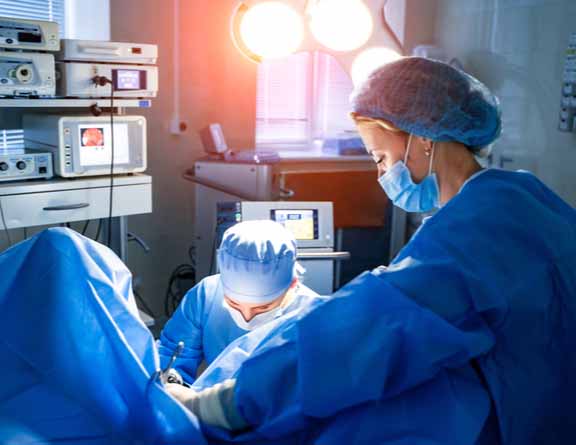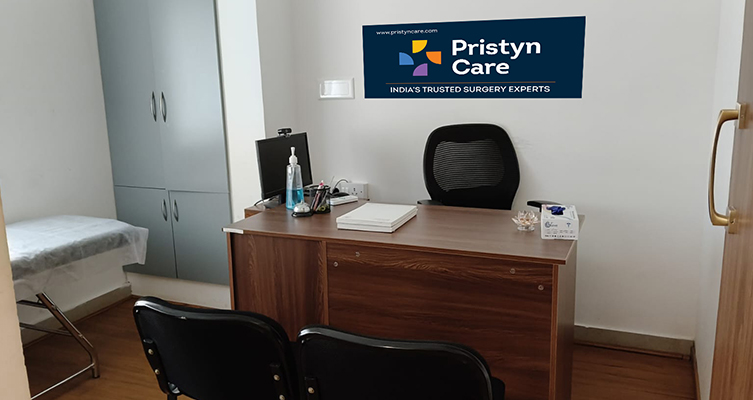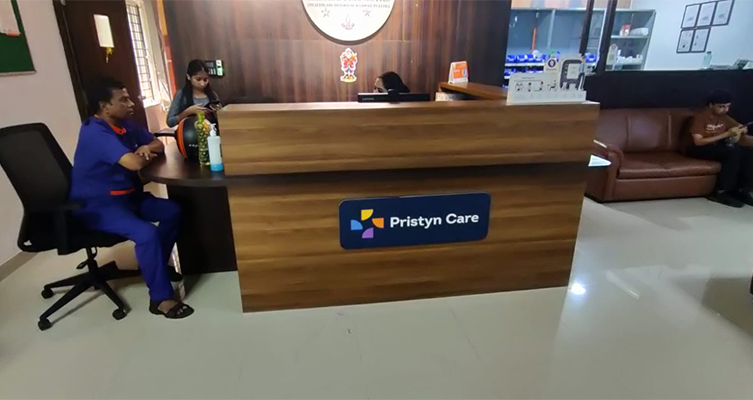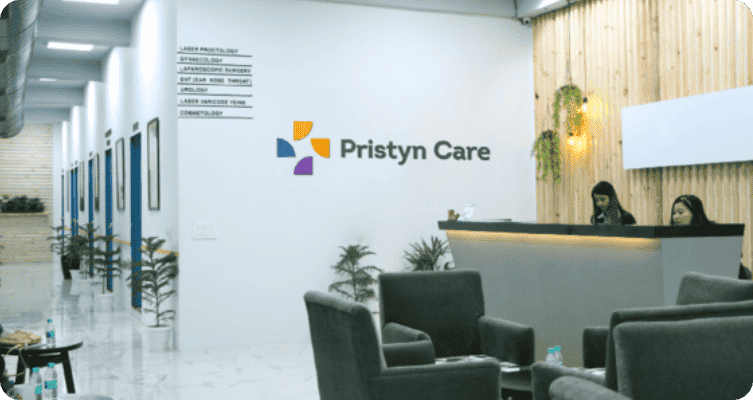How can I find the best hernia doctor in Bangalore near me?
You can find the best hernia doctor in Bangalore by following the tips below:
- Get a referral from your primary care provider, friends, or family.
- Find a doctor that meets your health needs and clears your doubts and concerns properly.
- Check the doctor’s qualification and license of practice. Ask how many years of experience the doctor has and how many surgeries he/she has performed.
- Find out whether the doctor is working at a hospital or clinic.
- Gather reviews from previous patients.
- These things will help to find out if the doctor has ample skills and a good reputation among the patients. Thus, you will be able to make an informed decision.
How to Prepare for Hiatal Hernia Surgery?
Preparing for hiatal hernia surgery involves several steps to ensure a safe and successful procedure. Here are some general guidelines to help you prepare:
- Consultation with a surgeon: Schedule an appointment with a surgeon who specializes in hiatal hernia repair. During the consultation, the surgeon will evaluate your condition, discuss the surgical options, and address any questions or concerns you may have.
- Medical evaluation: Your surgeon will likely order preoperative tests to assess your overall health and determine if you are a suitable candidate for surgery. These tests may include blood tests, chest X-rays, and electrocardiogram (ECG).
- Fasting instructions: Your surgeon will provide specific instructions regarding fasting before surgery. Typically, you will be instructed not to eat or drink anything for a certain period of time before the surgery, usually starting from midnight the night before the procedure. This is necessary to ensure your stomach is empty during the surgery to reduce the risk of complications.
- Smoking cessation: If you are a smoker, it is strongly advised to quit smoking before surgery. Smoking can impair the healing process and increase the risk of complications. Your surgeon may provide resources or support to help you quit smoking.
- Anesthesia consultation: In some cases, you may need to meet with an anesthesiologist before the surgery. They will evaluate your medical history, discuss anesthesia options, and address any concerns you may have related to anesthesia.
- Arrange transportation and support: Since you will not be able to drive yourself home after the surgery, arrange for a responsible adult to accompany you to the hospital and drive you back home. It is also helpful to have someone stay with you during the initial recovery period at home.
- Preoperative instructions: Follow any specific preoperative instructions provided by your surgeon. These may include showering with a special antibacterial soap the night before or the morning of the surgery, avoiding certain foods or medications, and wearing loose, comfortable clothing on the day of the procedure.
- Emotional preparation: Surgery can cause anxiety or stress. If you have any concerns or fears, discuss them with your surgeon or healthcare team. They can provide information and support to help alleviate your concerns.
Benefits of Hiatal Hernia Surgery
Hiatal hernia surgery, also known as hiatal hernia repair, can offer several benefits for individuals with symptomatic or large hiatal hernias. Here are some potential benefits of hiatal hernia surgery:
- Relief of symptoms: Hiatal hernias can cause symptoms such as heartburn, regurgitation, chest pain, difficulty swallowing, and shortness of breath. Surgery aims to address the underlying problem by repairing the hernia and reinforcing the weakened muscles and tissues. By doing so, surgery can help alleviate or significantly reduce these symptoms, improving the quality of life for patients.
- Reduction of acid reflux: Hiatal hernias are often associated with gastroesophageal reflux disease (GERD), a condition characterized by the backflow of stomach acid into the esophagus. Surgical repair of the hiatal hernia can help restore the normal anatomy and function of the lower esophageal sphincter, which is responsible for preventing acid reflux. This can lead to a significant reduction in acid reflux symptoms and a decreased reliance on medications.
- Decreased need for medication: Many individuals with hiatal hernias rely on medications such as antacids, H2 blockers, or proton pump inhibitors (PPIs) to manage their symptoms. While medications can provide relief, they may have side effects or long-term consequences. By addressing the underlying hernia through surgery, the need for medication may be reduced or eliminated, potentially reducing the associated side effects and costs.
- Prevention of complications: In some cases, hiatal hernias can lead to complications such as strangulation, where the stomach becomes trapped and its blood supply is compromised. Paraesophageal hernias, in particular, carry a higher risk of complications. Surgical repair can help prevent these complications by returning the stomach to its proper position and securing the hiatus, reducing the risk of strangulation or twisting of the stomach.
- Improved swallowing function: Hiatal hernias can cause difficulty swallowing (dysphagia) due to the displacement of the esophagus or compression of the surrounding structures. Hiatal hernia surgery can help alleviate this compression, allowing for improved swallowing function and reducing discomfort while eating or drinking.
- Long-term resolution: While conservative measures such as lifestyle modifications and medications can provide temporary relief, they may not address the underlying hernia. Hiatal hernia surgery aims to repair the hernia and provide a long-term solution, potentially eliminating or significantly reducing symptoms and improving overall well-being.
Recovery After Hiatal Hernia Surgery
Recovery after hiatal hernia surgery can vary depending on the surgical approach used, the extent of the hernia repair, and individual factors. Here are some general guidelines and considerations for the recovery period:
- Hospital stay: Most hiatal hernia surgeries are performed using minimally invasive techniques, such as laparoscopic surgery. This often allows for shorter hospital stays compared to traditional open surgery. The typical hospital stay is usually one to two days, but it can vary depending on individual circumstances and the surgeon’s preference.
- Pain management: You may experience some pain or discomfort at the incision sites or in the chest and abdominal areas after surgery. Your healthcare team will provide pain management strategies, which may include prescribed pain medications or over-the-counter options. Follow the instructions provided by your healthcare team for pain management.
- Diet and eating: Your surgeon will provide specific instructions regarding your diet after surgery. Initially, you may be on a clear liquid diet and gradually advance to a soft or regular diet as tolerated. It is important to follow these dietary guidelines to allow the surgical site to heal properly and prevent complications. Chew your food thoroughly and eat smaller, more frequent meals to avoid putting excessive pressure on the repair site.
- Activity and mobility: It is important to gradually increase your activity level and mobility after surgery. Start with short walks and light activities and gradually progress based on your comfort level. Avoid strenuous activities, heavy lifting, and vigorous exercise for the first few weeks after surgery to allow for proper healing.
- Wound care: You may have small incisions or sutures at the surgical sites. Follow the instructions provided by your healthcare team regarding wound care. Keep the incisions clean and dry, and avoid submerging them in water until cleared by your surgeon. Report any signs of infection, such as increased redness, swelling, or drainage, to your healthcare provider.
- Medications: Your surgeon may prescribe medications, such as proton pump inhibitors (PPIs) or other acid-reducing medications, to continue managing acid reflux symptoms during the recovery period. Take all prescribed medications as directed and report any concerns or side effects to your healthcare team.
- Follow-up appointments: It is important to attend all scheduled follow-up appointments with your surgeon. These appointments allow your surgeon to monitor your progress, assess the healing process, and address any concerns or questions you may have.
- Return to normal activities: The timeline for returning to normal activities, including work, will vary depending on the type of surgery performed and individual recovery progress. Your surgeon will provide specific guidelines regarding when you can resume various activities. It is important to avoid heavy lifting and strenuous activities for a few weeks or as advised by your surgeon.
- Potential complications: While complications are rare, it is important to be aware of potential signs of complications, such as infection, excessive swelling, persistent pain, fever, or difficulty swallowing. Contact your healthcare provider if you experience any concerning symptoms.
Recovery times can vary among individuals, but most people can expect to gradually return to their normal activities within a few weeks to a couple of months after hiatal hernia surgery. It is crucial to follow your surgeon’s instructions, attend follow-up appointments, and communicate any concerns or questions to your healthcare team throughout the recovery process.
Risk & Complications Associated with Hiatal Hernia Surgery
Like any surgical procedure, hiatal hernia surgery carries some risks and potential complications. While these risks are generally low, it is important to be aware of them. Here are some possible risks and complications associated with hiatal hernia surgery:
- Infection: There is a risk of developing an infection at the surgical site or in the surrounding tissues. This risk is generally low but can occur. Signs of infection include increased redness, swelling, warmth, or drainage from the incision site. Infection may require antibiotics or additional treatment.
- Bleeding: During surgery, there is a risk of bleeding. In most cases, bleeding can be controlled during the procedure. However, in rare instances, excessive bleeding may require a blood transfusion or additional surgical intervention.
- Adverse reaction to anesthesia: Anesthesia carries its own risks, including allergic reactions, respiratory problems, or adverse reactions to medications. Anesthesia-related risks will be evaluated and discussed with you by the anesthesiologist prior to surgery.
- Injury to surrounding structures: During the surgery, there is a small risk of injury to nearby organs or structures, such as the esophagus, stomach, blood vessels, or nerves. Surgeons take precautions to minimize these risks, but occasional injury may occur, requiring additional treatment or procedures.
- Difficulty swallowing or gas bloat: After hiatal hernia surgery, some individuals may experience temporary difficulty swallowing (dysphagia) due to swelling or tightness around the repaired area. This usually improves over time as the area heals. Additionally, some individuals may experience an increased sensation of bloating or gassiness after eating. These symptoms often resolve within a few weeks or months after surgery.
- Recurrence of hernia: While hiatal hernia surgery aims to repair the hernia and reinforce the weakened area, there is a small risk of hernia recurrence. This can happen if the repair does not hold or if a new herniation occurs. The risk of recurrence is generally low, but it can vary depending on the type and size of the hernia and the surgical technique used.
Cost of Hiatal Hernia Surgery in Bangalore
The cost of hiatal hernia surgery in Bangalore can range from approximately Rs. 50,000 to Rs 1,30,000. The cost of hiatal hernia surgery can vary for different patients due to several factors. Here are some reasons mentioned for the variations in the cost of hiatal hernia treatment:
- Hospital charges: The choice of hospital or medical facility can have a significant role in the cost of hiatal hernia treatment. Different hospitals have different pricing structures and fee schedules. Higher-end hospitals or specialized centers may charge more for their services compared to smaller or less specialized facilities.
- Surgeon’s fees: The fees charged by surgeons can vary based on their experience, qualifications, and reputation. Surgeons with more experience and expertise in performing hiatal hernia surgeries may charge higher fees for their services.
- Diagnostic tests: The cost of preoperative diagnostic tests, such as upper GI endoscopy, barium swallow, or imaging scans, can vary depending on the facility and equipment used. Different hospitals or diagnostic centers may have different pricing structures for these tests.
- Type of surgery: The choice of surgical procedure for hiatal hernia treatment can also impact the cost. There are different surgical techniques available, including open surgery and minimally invasive procedures like laparoscopic or robotic surgery. Minimally invasive procedures often tend to be more expensive due to the use of specialized equipment and techniques.
- Hospital stay duration: The duration of hospital stay can affect the overall cost of treatment. The length of stay will depend on factors such as the complexity of the hernia, the chosen surgical approach, and the patient’s overall health. Longer hospital stays will generally result in higher costs.
- Additional services: The inclusion of additional services such as postoperative consultations, medications, physiotherapy, and follow-up appointments can also contribute to the overall cost of treatment. These services may vary between different hospitals or surgeons.




Pristyncare%20Clinic.webp)



.svg)
.svg)